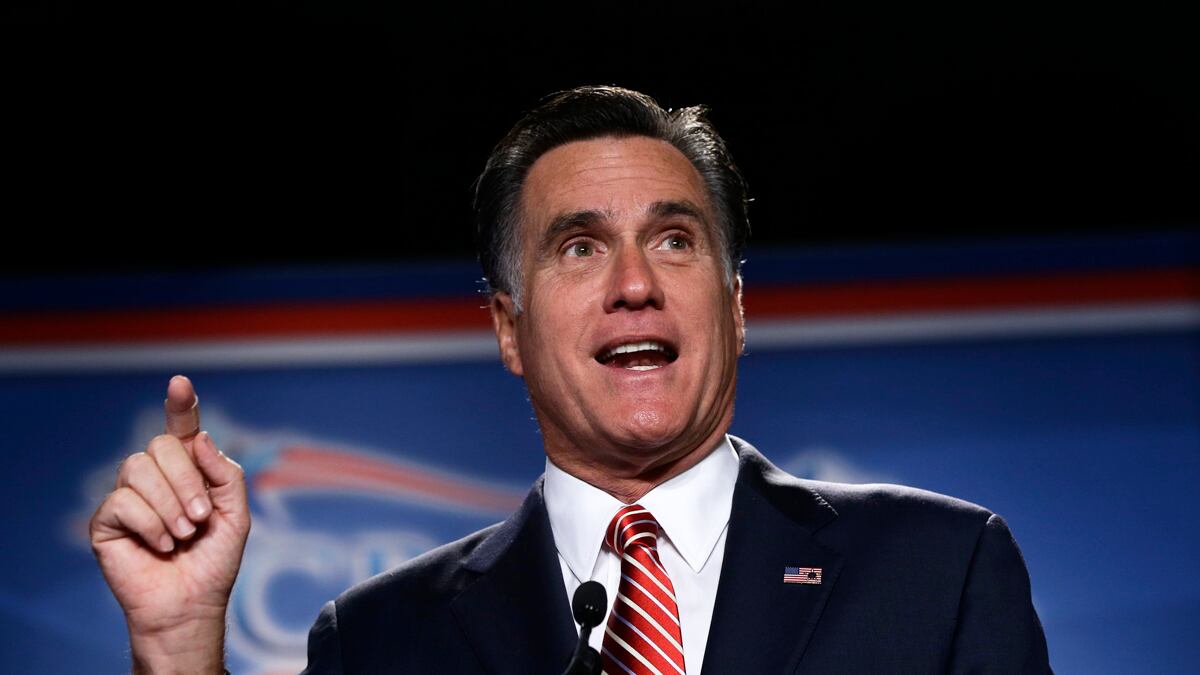No, Mitt Romney doesn’t want to kill Big Bird.
But he did find the gumption to suggest that this rich and famous figure of flightless fancy should continue his (its?) dazzling success without depending on federal welfare.

Democrats have seized on the Big Bird controversy in a desperate attempt to find some aspect of Romney’s impressive performance in the first debate to turn against him. Republicans now fully expect that Obama rallies will frequently feature visitors dressed as Big Bird or Elmo carrying plaintive signs pleading, “Please Don’t Kill Me, Mr. Romney!”
In fact, the mommy (or at least godmother) of those beloved characters has assured the world that talk of budget cuts at the Corporation for Public Broadcasting represent no threat at all to Big Bird, Elmo, and associates. Even before the latest flurry of concern raised by the Denver debate, Sherrie Westin, executive vice president and chief marketing officer of Sesame Workshop, told Soledad O’Brien of CNN: “Sesame Workshop receives very, very little funding from PBS. So we are able to raise our funding through philanthropic, through our licensed product, which goes back into the educational programming, through corporate underwriting and sponsorship. So, quite frankly, you can debate whether or not there should be funding of public broadcasting. But when they always try to trot out Big Bird, and say we’re going to kill Big Bird—that is actually misleading, because Sesame Street will be here … Big Bird lives on!”
Of course, the phrase “killing Big Bird” never appeared in the transcript of the Romney–Obama debate, any more than the GOP candidate ever mentioned the word “moochers” in his infamous (and now totally repudiated) May comments about the 47 percent of Americans who don’t pay income taxes. What Romney suggested in Denver simply repeated a point he’s been making for more than a year: that responsible White House leadership requires major cuts to inessential federal programs. The nominee has never equivocated on his pledge to review every significant government expenditure by posing an uncomfortable question: is this project so important that it’s worth borrowing more money from China in order to pay for it?
In the case of PBS, the answer ought to be an obvious no. Only a tiny proportion of the cost of operating the nation’s elaborate system of public broadcasting (with more than 350 independent stations across the country) comes from federal funding. The $445 million appropriated by Congress for the Corporation for Public Broadcasting in 2012 amounts to less than 18 percent of the estimated budget for the whole of America’s system of public TV and radio. In the case of the hugely popular Sesame Workshop, for instance, less than 8 percent of the yearly budget of $170 million comes from governmental sources, with the great bulk supplied by licensing agreements that produce toys and games and stuffed animals featuring all those beloved characters.
In general, public broadcasting survives because of listener support (who hasn’t suffered through those tedious pledge drives?), grants from charitable foundations and, above all, corporate underwriting. When a major company has the right to announce, “This program made possible by a grant from the Acme Widget Corporation—making wonderful widgets for the new millennium,” it’s worth serious bucks if the sponsored show has found an eager audience.
For instance, Ken Burns’s brilliant 1990 series on the Civil War received major funding from General Motors and helped burnish the car company’s international image. On a far less grandiose note, Sneak Previews, the fondly remembered PBS movie review show that I co-hosted between 1985 and 1996, received some conspicuously generous underwriting from such non-governmental behemoths as United Airlines and Ford. Having personally involved myself in the perpetual search for financial backing for our show, I can certify what any other honest veteran of public television will attest: a very minor expansion of the time for underwriting announcements (an increase of two minutes per hour, at most) would more than make up for the loss of all federal funding.
In other words, our federal bureaucrats today borrow a half billion a year in order to avoid subjecting PBS and NPR fans to the inconvenience and potential annoyance of a few extra moments of corporate acknowledgement. Of course, those viewers and listeners could avoid the expanded opportunities for underwriters by upping their own contributions during pledge drive, but that’s another story.
The point remains incontestable that public television and radio stations could easily survive without the tiny proportion of their costs currently provided by taxpayers.
When the system began in the ‘60s, governmental support played a much greater role and, in an era without cable or the Internet, PBS performed a far more important function for the culture. With only ABC, CBS, and NBC offering national television programming, PBS became the chief source for concerts, ballet, historical documentaries, nature films, cooking shows, vintage movies, political conversation, quality kiddie shows and, above all, excellent dramatic and comedy series imported from the BBC. During my own days on public television, I used to describe our network as the place you could go to watch wild animals who mate and English characters who don’t. During the ‘80s, PBS also became the nation’s leading network for broadcasting professional tennis (this no joke!) and Ivy League football.
But as worthy as these contributions may have been for public television’s relatively small core of devoted viewers, the cable revolution made the federally funded service largely unnecessary. The History Channel, Bravo, Discovery, A & E, Nickelodeon, C-SPAN, MTV, the Food Network, Turner Movie Classics, not to mention the various cable news and business networks, all provide the sort of programming at one time available only on PBS.
Since President Obama likes to paraphrase Lincoln by saying “the government should do for people only those things they can’t do better on their own” it becomes doubly doubtful that the feds should fund public television at a time of budgetary breakdown. First, the public stations would find ways to continue to fund themselves—as they already cover the great bulk of their current costs without dependence on Washington. And second, it’s increasingly questionable that public TV plays an essential role in our national life that couldn’t be handled by other flourishing for-profit or charitable ventures.
There is, in short, no real war on Big Bird, and no threat to Elmo’s survival. In fact, if the executives at Sesame Workshop ever wanted to place their wildly successful franchise with their cherished characters on some commercial channel they could do so instantly—just as their Muppet cousins have found a seemingly happy home with the Disney Company.
Mitt Romney, as he made clear in Denver, actually likes Big Bird and hopes that like any other adored celebrity, the character will be able to stand on its own without depending on the federal dole. Independence, pride, self-reliance, productivity, and maturity ought to stand as appropriate values to encourage for the tykes who view Sesame Street, as well as for the characters and creators who entertain and enlighten them.






